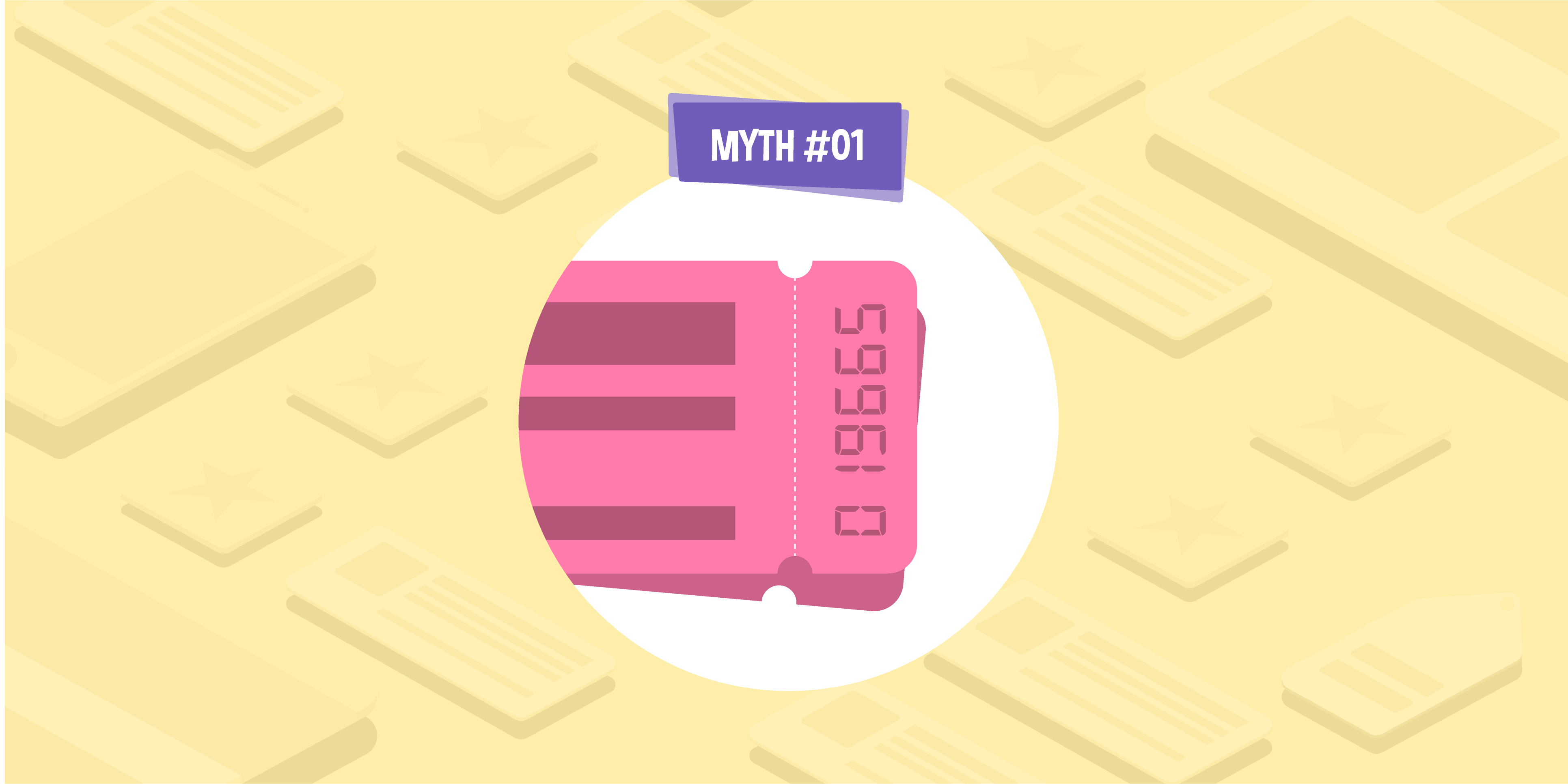
- 15 May 2019
- 6 Min read
What are paid search ads and how can they benefit your business?
- by Emily Park
Whether you’re a new business owner assessing your digital marketing options or an established brand looking to add a string to your bow, you might be considering PPC (pay per click) advertising. It can be a very effective technique for gaining exposure and conversions for your business, but it can get quite complicated and also takes a lot of work if you want to maximise your return on investment (ROI).
Here, we’re going to explain exactly what PPC and paid search ads are, as well as how they work. We’ll also walk you through how advertising in this way can benefit your business, so you can decide whether this is a route you would like to go down. Read on to learn more.
What is PPC?
PPC is a type of advertising whereby you will only be charged when an internet user actually clicks on one of your ads. It’s essentially a way of buying exposure that you might struggle to gain organically. And, as with all methods of digital marketing, the end goal is to generate more conversions, whether that’s sales or enquiries.
Pay-per-click marketing can be incredibly competitive, and it changes on a daily basis. As a result, PPC campaigns require regular maintenance. However, they can be incredibly effective at converting the right customer at the right time, for a very profitable ROI.
There are several different types of PPC ad, but paid search ads are the most common. These appear when someone uses a search engine like Google. If they search for phrases related to your keywords or products, depending on your set up, your ads could be triggered. Other kinds of PPC advertising including display advertising, Google Shopping, and remarketing, which are slightly more complicated. In this guide, we’re going to focus on paid search ads to get you started.
What is Google Ads?
Google Ads (formerly known as Google AdWords) is the search engine’s own advertising service, which allows you to place ads on Google’s search engine results pages (SERPs) and its affiliate sites. It’s the platform most commonly used by digital marketers looking to set up and manage a PPC campaign.
The platform allows you to pick out a selection of keywords that are relevant to your business, and that searchers might be using to find products and services such as yours. You can then create ads that to appear in the SERPs based on these keywords.
However, in order to secure ad space on your chosen SERPs, you need to have good Ad Rank, which will be assigned to you by Google. You’ll also need to bid against your competitors in order to get the space you want. We’ll explain more about this below.
What is Ad Rank?
Google uses a metric known as “Ad Rank” to determine in which order paid search ads will appear in its SERPs. Through Google Ads Help, they explain: “Generally speaking, the ad with the highest Ad Rank gets to show in the top position and the ad with the second-highest Ad Rank gets to show in the second position (assuming the ads clear the relevant thresholds), and so on.”
There are certain factors that are taken into account to determine your ad’s Ad Rank, and these include:
- Your auction-time ad quality (including expected click-through rate, ad relevance, and landing page experience);
- The Ad Rank thresholds;
- The context of the person’s search (e.g. the person’s location, device, time of search etc.);
- The expected impact of extensions and other ad formats.
You’ll also need to bid against your competitors to secure ad space on Google’s SERPs, and the search engine giant will also consider how much you’re willing to pay when deciding which position to give you.
How does PPC work?
Once you’ve created an account using a search engine advertising platform, set up your first ad, and chosen the relevant keywords you would like your ads to show up for, you’ll then have to make your bids. Not only will this determine whether you get a place on the SERPs, but it will also help to decide where you’re placed.
For example, for searches to do with men’s jeans, the bid for the number one position might be £2.90. So, if you’re only bidding £2.50 per click (assuming all else is equal), there’s no way you’ll make it to the top. Fortunately, you’ll be shown what your average position is, and you will be able to adjust your bids accordingly.
However, as we’ve previous mentioned, PPC can be incredibly competitive. This means, even if you’re bidding enough to hit first place, one or more of your competitors might be doing the same — that’s where your Ad Rank comes in. This is why it’s so important that you keep an eye on all of the factors we’ve outlined above and make the necessary adjustments if you see any areas for improvement.
What are the advantages of PPC marketing?
Whether you’ve already developed a range of digital marketing channels for your business and are wondering whether PPC would make a good addition, or you’re just getting started and are wondering whether PPC is the first method you should try, you might be wondering how it compares to other techniques. Going down the PPC route has a whole host of advantages, and we’ll discuss why a lot of digital marketers swear by it.
You’ll only pay when somebody clicks
As we’ve previously explained, when you decide to go down the PPC route, you will only ever be charged when someone shows an interest and clicks on your ad. This means you could run an ad that is shown to 10,000 people but, if nobody is actually sent to your website, you won’t pay anything. Of course, the ultimate aim is to lead more people to your website but, even in this instance, more people will be exposed to your brand, which will increase awareness and familiarity.
Once your campaign is generating revenue, you might even be given the option of only paying for conversions, which will mean you’re charged even less often.
In summary, with PPC, you only pay when you get the desired result, and that’s a huge plus for business owners.
Measurable and trackable
One of the major benefits of PPC advertising is that any platform you use will make it easy for you to track and measure how well your campaign is doing. You’ll be shown performance details including the number of impressions, clicks, and conversions, which means you can keep an eye on how things are progessing, and adapt your strategy whenever necessary.
The picture isn’t always so clear with some other marketing techniques, such as using billboards and magazine ads. But, with PPC, you’ll be able to see exactly what you’ve spent and how much of a return you’ve made, which you’re likely to find reassuring.
You’ll be in control
While you might decide to automate certain aspects of your PPC campaign, and there may be some default settings that you need to go with, you’ll still have a great deal of control over your PPC marketing strategy.
You’ll have a lot of flexibility when it comes to setting your budget, which can be especially helpful in the beginning when you’re just getting a handle on things. Then, when you start to see results, you can scale up as quickly as you like, which will help you to avoid missing any opportunities. Or, if you’re not sure things are working out how you imagined, you can pause or completely stop your ad spend straight away. Again, this should give you peace of mind, as you won’t have to worry about committing to a long-term plan.
Ads are targeted
Because you can choose the keywords that you feel are most relevant to your business, you can ensure your PPC campaign is as targeted as possible. This means it’s likely the right kinds of people are going to be exposed to your business’s products or services.
It’s also possible to target your PPC ads based on everything from location to searchers’ online behaviour. You can even target hundreds of keywords at the same time. This means PPC gives you a higher level of precision compared to other techniques.
You can catch up to your competitors quickly
It can take some time to see results with some forms of digital marketing, but you should start to see the benefits of PPC immediately. This means, if your competitors already have a strategy in place, you won’t have to worry about catching up — if you’re able to outbid them and take steps to boost your Ad Rank, you’ll become competitive straight away.
This can be particularly helpful for new businesses that are trying hard to forge a reputation for themselves in a competitive industry.
How can PPC benefit your business?
So, we’ve talked you through the general benefits of PPC, but how can this digital marketing strategy actually benefit your business? There are a number of ways in which it can help to raise your profile and secure more sales for you, and we’ll explain exactly how here.
Will work well alongside your SEO strategy
PPC and SEO might be different marketing techniques, but they’re used with the same goal in mind: to drive more people to your website. They also work quite similarly in that they both rely quite heavily on you identifying and targeting the right keywords. So, they can complement one another incredibly well.
There are a number of ways in which they can work together. For example, by paying close attention to which keywords perform well within your PPC campaign, you can use this information to inform the content aspect of your SEO strategy. Plus, both of these digital marketing techniques can help to raise your brand’s profile so, by using both, you should be able to get your products or services in front of more people much quicker.
If you would like to know more about how PPC and SEO can work well together, make sure you read Search Engine Journal’s guide on how to combine SEO and PPC for more powerful results, which will explain everything you need to know.
Increases brand recognition
PPC allows you to buy space on SERPs which means, even if someone doesn’t click through to your site, you’ll still be getting free exposure for your brand. And, as people see your company’s name more and more, this will help you to gain trust, and also make it more likely that searchers will think of you when they’re next looking for your products and services.
Can help you to compete with more established businesses
As we’ve previously mentioned, PPC is incredibly competitive: because large businesses spend a great deal on advertising for the most popular keywords, you might struggle to secure a space on these SERPS. However, there are significant opportunities to compete with them if you target more niche keywords that they haven’t gone for. You can also test out running your ads at different times.
If you carry out plenty of trials, think outside of the box, and take advantage of the keywords other businesses might not be targeting, this could help you to secure business that might otherwise go to more established companies.
What does managing a PPC campaign entail?
As we’ve discussed, PPC campaigns take a lot of work, as the space is very competitive and the landscape is changing all of the time. Plus, to get the best results, you’ll want to conduct plenty of tests, be constantly monitoring your progress, and adjusting your strategy accordingly. However, when you’re also managing all of the other aspects of your business, doing the best possible job of this might not be feasible.
So, if paid search is something you’re interested in trying out but you aren’t sure you can spare the time it takes, you could probably use the help of a PPC agency. We can help you out by managing your PPC campaigns in a way that will maximise your ROI, and you’ll receive regular reports, so you’ll always know what kinds of results we’re getting. If you think this might benefit your business, get in touch for a friendly chat about what’s going to work best for you.

